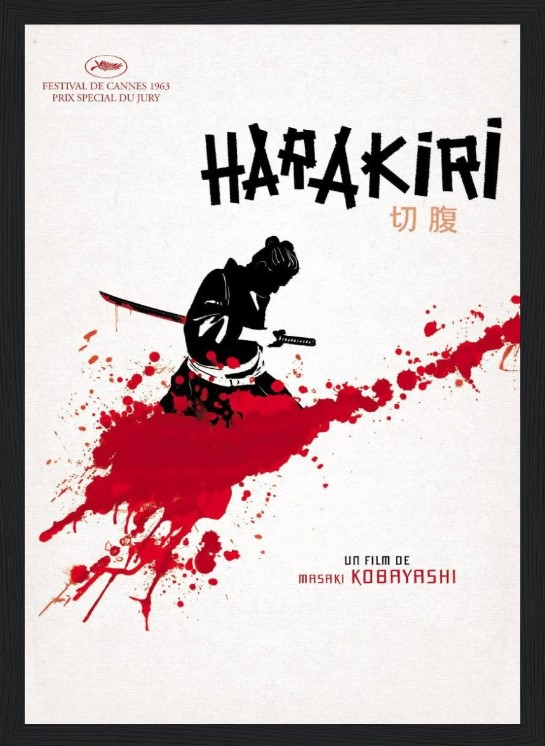Harakiri Synopsis
Synopsis
The story begins in 1630, when Hanshiro Tsugumo, an aging samurai, arrives at the house of the Iyi clan and requests to commit harakiri (ritual suicide) in their courtyard. The head of the clan, Kageyu Saito, is suspicious, believing Hanshiro might be bluffing to gain charity. To dissuade him, Saito recounts the tragic fate of another ronin, Motome Chijiiwa, who had made a similar request and was forced to commit harakiri with a bamboo blade, leading to a gruesome death.
Unfazed by the story, Hanshiro insists on his request and begins his preparations. As the ritual proceeds, Hanshiro reveals through flashbacks his true intentions and the tragic events that led him to this point. He shares the story of his son-in-law, Motome Chijiiwa, whose death was not a random act but a calculated punishment by the Iyi clan.
Hanshiro’s narrative exposes the hypocrisy and cruelty of the samurai code, revealing how Motome was driven to his desperate act by poverty and the need to support his sick wife and child. As Hanshiro’s tale unfolds, it becomes clear that his request for harakiri is a ruse for revenge against those responsible for Motome’s death.
The film culminates in a tense and dramatic confrontation, as Hanshiro challenges the integrity of the samurai code and the honor of the Iyi clan, leading to a shocking and powerful conclusion.
- Taglines: None
- Genres: Drama, History
- Duration: 2h 15min
- Year: 1962
- Rated: Not Rated
- Metascore: 94

Interesting Facts
- The film won the Special Jury Prize at the 1963 Cannes Film Festival.
- Director Masaki Kobayashi was known for his critical stance against the establishment, which is evident in Harakiri.
- Tatsuya Nakadai, who played Hanshiro Tsugumo, is one of Japan’s most revered actors and frequently collaborated with Kobayashi.
- The film is often praised for its cinematography and innovative use of flashbacks.
What Makes the Film Great?
Harakiri is lauded for its intense emotional depth and its critical examination of the samurai code. The film’s narrative structure, characterized by its non-linear storytelling and use of flashbacks, creates a profound and gripping experience. The performances, particularly by Tatsuya Nakadai, and the stark cinematography add to the film’s enduring impact.
Director
Masaki Kobayashi was a renowned Japanese director known for his socially critical films. Besides Harakiri, his other notable works include “The Human Condition” trilogy and “Kwaidan.” Kobayashi’s films often challenged authority and highlighted the struggles of the individual against societal oppression.
Cast
- Tatsuya Nakadai: Hanshiro Tsugumo
- Akira Ishihama: Motome Chijiiwa
- Shima Iwashita: Miho Tsugumo
- Rentarô Mikuni: Kageyu Saito
